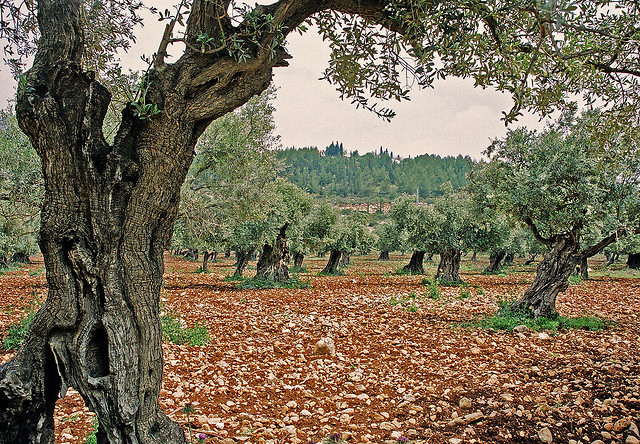Die Geheimnisse des Olivenöls
Wir wissen: Olivenöl ist sehr gesund. Unzählige wissenschaftliche Arbeiten zeigen uns, wie dessen Inhaltsstoffe wirken und welche positiv verträglichen Eigenschaften es mit sich bringt. So hilft es gegen Entzündungen, Herz-Kreislauf Erkrankungen, Diabetes, Fettleibigkeit und sogar gegen Krebs. Doch Oliven sind nicht das einzige Naturprodukt, aus dem Öl gewonnen wird; Korn, Kokosnuss, Erdnuss, Avocado, Palm, Sojabohnen und Sonnenblumen um nur einige zu nennen.
Nichtsdestotrotz ist das Olivenöl das Öl, welches am meisten genutzt wird und einzigartige Charaktereigenschaften auf unsere Teller zaubert.
Welches Olivenöl ist das gesündeste und sind alle gleich?
Um diese zwei Fragen zu beantworten, haben Wissenschaftler verschiedenste Öle auseinandergenommen und analysiert. Nachdem sämtliche Charakteristika gegenübergestellt wurden, stellte man fest, dass Olivenöl tatsächlich das gesündeste aller Öle ist. Doch wie gesund Olivenöl ist, hängt stark von der Art und Weise ab, wie es hergestellt, wie es konsumiert und gelagert wird.
Olivenöl wird eigentlich aus der Steinfrucht des Olivenbaums hergestellt und stellt in der mediterranen Welt die Hauptquelle für flüssiges Fett dar. Das Öl wird in Qualitätsstufen eingeteilt, wobei die höchste Qualität das „Extra-Virgin“ aufweist. Danach folgt „Virgin“ und die schlechteste Qualität ist mit „Pure“ betietelt. Vor allem das „Extra-Virgin“ hat unzählige gesundheitsfördernde Komponenten.
Warum ist Olivenöl so wichtig?
Was Olivenöl von anderen Ölen stark unterscheidet, ist der hohe Anteil an OLEIC-Säure, welche nachweißlich das Cholesterinlevel senkt. Dazu kommen verschiedene Antioxidantien, wie z.B. Vitamin E. Diese Zusammensetzung macht Olivenöl zum gesündesten Fett in unserem Speiseplan.
Der beste Weg um Olivenöl zu konsumieren ist noch immer der ungekochte oder aber das Öl auf niedriger Temperatur zu erhitzen. Wenn kein „Extra-Virgin“ zur Hand ist, können auch Öl aus Kokosnuss- oder Avocado-gewonnene verwendet werden. Diese zwei Arten sind vor allem zum Kochen bei hohen Temperaturen geeignete, da sie eine weitaus höhere Stabilität enthalten.
Die beste Möglichkeit um Öl zu lagern bietet Glas. Obwohl oft etwas anderes behauptet wird, kann die Lagerung in Plastik die Eigenschaften von Olivenöl verändern.
Also, solltest du das nächste Mal einkaufen gehen, dann verzichte auf billiges Öl und investier in „Extra-Virgin“. Es ist nicht nur gesund, sondern schmeckt auch außergewöhnlich gut – eben nicht umsonst das mediterrane Gold.
Bild: Chany Crystal (flickr)





Not all extra virgin olive oils are equal. Researched and favorite extra virgin olive oils that can boast three health claims granted by the EFSA (European Food Safety Authority):
1. the extra virgin olive oil is a food rich in vitamin E, which protects the body cells from oxidative damage
2. replacing saturated fats with monounsaturated and polyunsaturated fatty acids contained in the ‚extra virgin olive oil may help keep LDL cholesterol levels in the blood
3. the olive oil polyphenols can prevent oxidative stress, they have antioxidant effects, improve fat metabolism, protect the fraction LDL from oxidative damage
It ‚amazing to see how the fat component of breast milk is similar to that of extra virgin olive oil!
Of course they are not, but the same happens with the whole milk at the supermarket, they are not all equal. The point here is the benefits of “extra virgin” olive oil in general, and it is in this way because of its “insaponificable fraction” which contains many important compounds, responsible of its nutritional and antioxidant value (During the refining process this fraction is lost).
It is amazing how scientists have studied this type of oil and have come to the conclusion that this one is the healthiest fat. 😉
Dear Elizabeth, what you say is correct, but I would add that very few oils for sale that contain content of hydroxytyrosol and its derivatives, at least 250mg / kg. You know that only with this amount of hydroxytyrosol, the oil is nutraceutical!
I agree, hydroxytyrosol is one of the most important but there are many varieties of phenols in olive oil; the phenol concentration depends on variety, climate, area of growth of the olive, etc etc. So in my opinion it is difficult to choose one bottle only for the hydroxytyrosol content, the intake in terms of antioxidant activity might differ among various antioxidants (Oleuropein is an ester of hydroxytyrosol, we can look for it too).
Anyway, we can agree on the benefits of olive oil, not only for its health benefits but also for its good taste.
We could be discussing a whole day. I only say that finally the EU Regulation 432/2012, is a milestone for the world’s oil! The Polyphenols give the oil stability, nutritional qualities and health benefits, as well as sensory characteristics. Phenols pass in part in the olive oil from the first pressing extra virgin, which are present in concentrations due to various factors (cultivar, climate, ripeness of the olives, harvesting, storage before milling etc.).
These compounds are responsible for the stability of the oil, which prevent rancidity, and sensory characteristics: the two most important in this regard are hydroxytyrosol and oleuropein. That’s why I talk only of hydroxytyrosol and its derivatives. I produce oils that meet fully the EU Regulation 432/2012 (the presence of hydroxytyrosol and its derivatives> 250mg / kg) and have excellent organoleptic characteristics, with a shelf life> 24 months.
The oil must be nutraceutical otherwise it is better not to buy it! The oil must be fruity, bitter and spicy. Oils that not have these characteristics are oils „treated“, „mixed“ and often with defects.